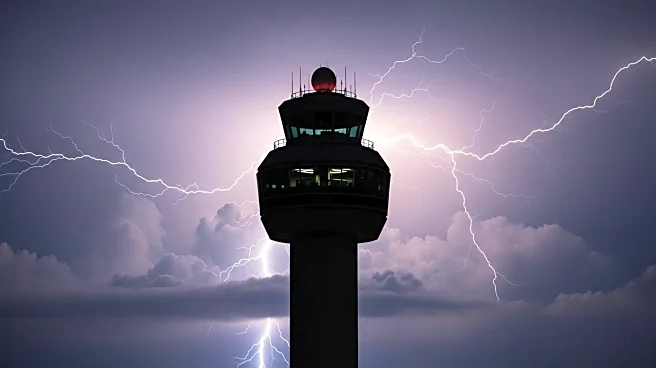What's Happening?
A cyberattack on Collins Aerospace, a provider of check-in and boarding systems, has disrupted operations at major European airports, including London's Heathrow, Brussels, and Berlin. The attack has led to flight delays and cancellations, as automated systems have been rendered inoperable, necessitating manual check-in and boarding. The European Commission and national cybersecurity agencies are investigating the incident, which has affected thousands of passengers. The disruption is part of a broader trend of sophisticated cyberattacks targeting critical infrastructure globally.
Why It's Important?
The incident highlights the vulnerability of critical infrastructure to cyberattacks, with significant implications for the aviation industry and global travel. Airports are essential for international connectivity, and disruptions can have widespread economic and logistical impacts. The attack raises concerns about the security of shared digital systems and the potential for similar incidents in other sectors. It underscores the need for robust cybersecurity measures and contingency planning to protect against such threats.
What's Next?
Efforts are underway to resolve the technical issues and restore normal operations at affected airports. The incident may prompt a review of cybersecurity practices and policies in the aviation industry, potentially leading to increased investment in security infrastructure. Passengers are advised to confirm flight details and prepare for possible delays. The situation may also influence future regulatory approaches to cybersecurity and infrastructure resilience.
Beyond the Headlines
The attack raises ethical and legal questions about the responsibility of service providers to safeguard critical systems. It also highlights the challenges of balancing efficiency and security in digital infrastructure. The incident may lead to discussions on international cooperation in cybersecurity and the development of more resilient systems to prevent future disruptions.









